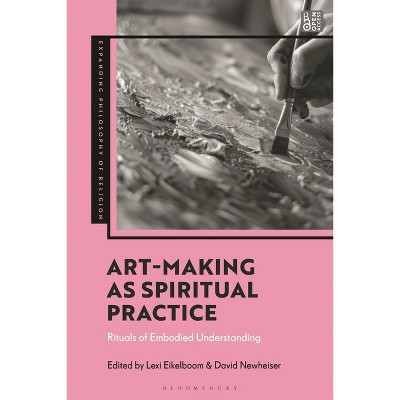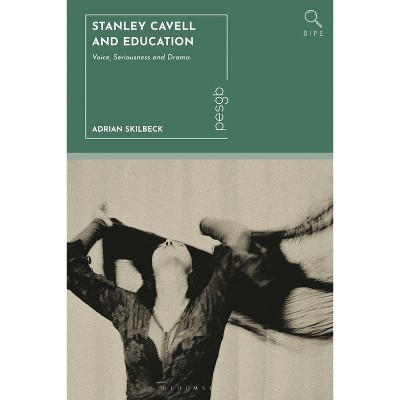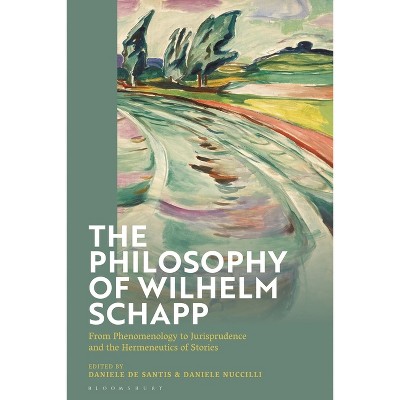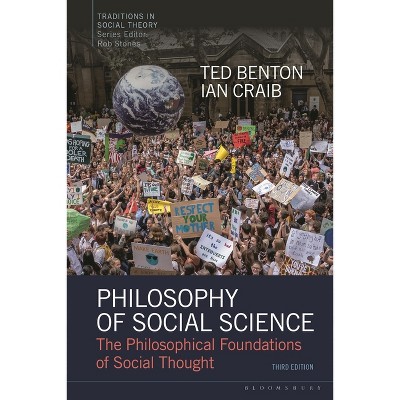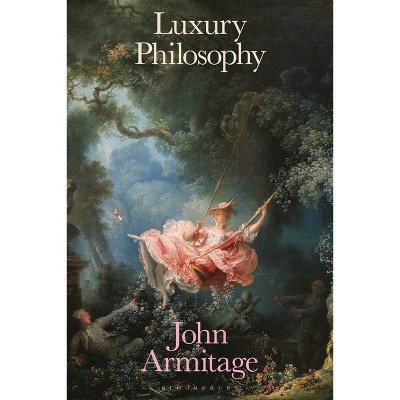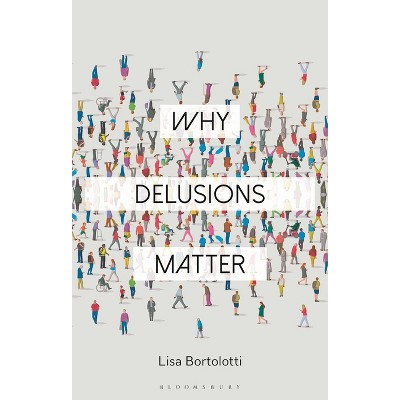Sponsored

The Philosophy of Philip Rieff - by William G Batchelder IV & Michael P Harding (Hardcover)
In Stock
Sponsored
About this item
Highlights
- Arguing that Philip Rieff was a Freudian who departed in vital and fascinating ways from Freud, and a committed modern who nevertheless viewed modernity as a disaster, this book makes clear his thought transcends contemporary left-right culture war dichotomies.
- About the Author: William G. Batchelder IV is an Associate Professor of History at Waynesburg University, USA.
- 328 Pages
- Philosophy, Political
Description
About the Book
Reinvigorating Rieff's ambitious cultural theories, The Social Philosophy of Philip Rieff argues for the enduring value that his work holds for contemporary cultural debates.Book Synopsis
Arguing that Philip Rieff was a Freudian who departed in vital and fascinating ways from Freud, and a committed modern who nevertheless viewed modernity as a disaster, this book makes clear his thought transcends contemporary left-right culture war dichotomies.
Alasdair MacIntyre described Rieff's early work as 'a permanently valuable contribution to the human sciences.' The essays in this volume engage with Rieff's teaching, both early and late, across a number of different axes and from a number of disciplinary perspectives, placing him into dialogue with thinkers such as Plato, Nietzsche, Freud, Weber, Heidegger, Strauss, Pieper, Wilde and more. The Philosophy of Philip Rieff conveys the utility of Rieff's theory for thinking through various contemporary issues, from religion, culture and race, to the role of elites in a democratic society. Philip Rieff's thought offers a key to unlocking the cultural trajectories of late modernity, and this interdisciplinary volume engages that work in its depth and complexity while suggesting Rieff's place in the wider philosophic tradition.Review Quotes
"We are experiencing ... a slow-motion clash of visions: one which looks outward to the logos; another which finds meaning emerging from within. We need some sense of hope that psychological man does not extinguish what is best about us. To find hope, we must begin with understanding. To find understanding, we might begin with Philip Rieff and with Rieffian thought as developed in this excellent book." --University Bookman
"In a period of severe cultural disarray, such as our own, those who see, feel, and suffer from the disarray seek out guides to understand it and respond to it. One guide, with penetrating acuity, was and remains Philip Rieff. This volume of worthwhile essays not only contributes to understanding Rieff's guiding work but also clearly indicates how a younger generation of scholars have turned to it so that they, too, may better understand and navigate the decline of the moral authority of our institutions analyzed so well by Rieff. It is gratifying to see this continuing engagement with Rieff's analysis of our time-an analysis richly deserving of our consideration and admiration." --Steven Grosby, Professor Emeritus of Religion, Clemson University, USA "This elegantly crafted volume of essays invites us to revisit the philosophical legacy of Philip Rieff, the mind of a moralist distressed by the displacement of the soul by the psyche, by the decline of culture, inflected by sacred virtues, eclipsed by an insidious celebration of values determined by individual disposition threatening the sacred order of humanity's shared, quotidian life." --Paul Mendes-Flohr, Dorothy Grant McClear Professor Emeritus of Modern Jewish History and Thought at the University of Chicago; and Professor Emeritus of Jewish Philosophy, The Hebrew University of Jerusalem "The significance of this new book is the wide range of contributors who were not Philip Rieff's students but who now represent the next generation that aims to keep his ideas alive and his work applicable to our present moment. It is testament to Rieff's enduring importance for cultural understanding." --Jonathan Imber, Jean Glasscock Professor of Sociology, Wellesley College, USA "As a man who refused to let us live comfortably with our social and cultural lies, Philip Rieff was among the deepest thinkers of the twentieth century. The Philosophy of Philip Rieff is an excellent companion to his work, with contributors helpfully and fruitfully explicating, and expounding on, his dense texts. This volume will be valuable both to those who have long been familiar with Rieff and those who are approaching him for the first time." --Jeremy Beer, Author of The Philanthropic Revolution (2015) "This welcome collection sheds light on and draws needed attention to the thought of Philip Rieff, an important if at times difficult writer. The contributors have provided helpful summaries to guide the reader through Rieff's often opaque prose. At the same time, they apply their understanding of Rieff's thought to shed light on Rieff's central concerns, including the place of religion, philosophy, and culture in our lives. In doing so, they make a persuasive case that Rieff's thought is essential to an understanding of our world, while at the same time they display an admirable critical and scholarly distance. This book is highly recommended, most especially for anyone seeking a better understanding of either Philip Rieff or the place of religion in human life."" --Luigi Bradizza, Professor of Political Science and International Relations, Salve Regina University, USA "It is always interesting to me how intellectuals from a previous generation come roaring back into the present. Phillip Rieff is one such individual who public commentators are coming back to time and time again as the prescient sage who saw what was emerging in the culture. This collection of essays on Phillip Rieff's thought is a most welcome contribution to the thought of a philosopher that deserves careful reading in order to make sense of our times." --Andrew T. Walker, Associate Professor of Christian Ethics and Public Theology, The Southern Baptist Theological Seminary, USAAbout the Author
William G. Batchelder IV is an Associate Professor of History at Waynesburg University, USA.
Michael P. Harding is a Professor of Philosophy at Montgomery College, USA.Shipping details
Return details
Trending Philosophy






